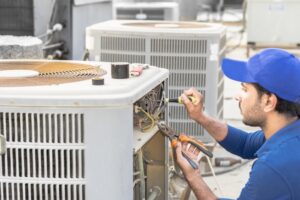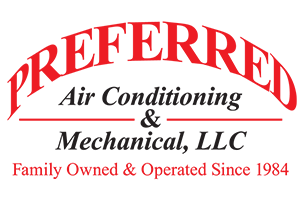What to Expect From a Home Energy Audit
If you’re looking forward to making your home more energy efficient but don’t know where to start, a home energy audit is the perfect first step. An energy assessment performed by a trusted professional can unearth a wealth of information about your home’s current energy usage. Armed with this knowledge, you can then pursue any number of energy-efficient solutions, saving you plenty of money in the long run.
Why Audit Your Home?
If you’re having problems cutting back on energy consumption, a home energy audit may be able to uncover hidden issues that prevent your home from being as efficient as it should be. Not only does a professional audit pinpoint areas where energy is being wasted, but it’ll also help you make upgrades that maximize your home’s energy efficiency.
According to the U.S. Department of Energy, a home energy audit can help you save anywhere from 5 to 30 percent on your monthly energy bill.
Tools of the Trade
The experienced HVAC contractor performing the audit will have an assortment of tools on hand, ranging from telescoping ladders for reaching high places to inspection mirrors for looking into tight, constricted areas. Other tools include:
- Combustion analyzer – This device samples flue gases and analyzes their temperature. It’s useful for detecting and measuring combustion gas leaks in oil and gas-fired appliances.
- Infrared camera – This camera uses infrared imaging to detect air leaks.
- Smoke generator – Capable of generating a thin stream of smoke, this device helps auditors find air leaks.
- Moisture meter – This meter measures moisture levels in a variety of materials.
- Watt meter – The tech will use this device to measure the amount of electricity consumed by various electronics in your home.
- Draft gauge – This guage is designed to locate and measure chimney drafts.
- Blower door – Blower doors are designed to locate air leaks by depressurizing the entire home. The average blower door consists of a calibrated variable speed fan, a manometer for measuring air pressure and a mounting system that seals the front entrance of your home for the duration of the test.
The Auditing Process
Preparation is always the first step of any home energy audit. Gather copies of energy bills from the last 12 months and create a list noting any existing problems in your home, such as moisture issues or constant drafts. The auditor will also take a look at the outside dimensions of your home and all of its features, including the size and number of windows.
During an energy audit, no stone goes unturned. Your auditor is trained to look at nearly every single aspect of your home, including:
- Attic – Auditors will check for any signs of water leakage, inadequate insulation and problematic wiring. Chimney bypasses, recessed lighting fixtures and air ducts are also inspected for air leaks.
- Basement – Auditors will look at the furnace for fuel leaks, dust and debris accumulation and filtration issues. All combustible appliances are checked and tested for proper venting.
- Kitchen and bathrooms – During an audit, the HVAC tech will not only check for excess moisture, but he will also assess vent fans for proper flow rate, watch for electrical issues and measure appliance energy consumption with a watt meter.
Home energy audits also cover a broad range of other issues, including window condensation, air register location, fireplace condition, thermostat type and settings and even the presence of lead in interior paints.
Expect the experienced auditor to also perform a health and safety inspection to ensure there are no lurking dangers within your home. This includes inspecting all gas and oil-fired appliances for carbon monoxide leaks and testing all smoke and carbon monoxide detectors.
Learn more about the usefulness of a home energy audit, as well as Preferred Air Conditioning & Mechanical, LLC’s cooling solutions, or call us at (561) 202-1422 for service in the Palm Beach area.
You May Also Like

Boost Your Boca Raton, FL, Business With Commercial AC Repair
Florida’s subtropical climate doesn’t take a February vacation. While temperatures hover in the comfortable mid-70s, your commercial AC system works overtime maintaining… Continue Reading Boost Your Boca Raton, FL, Business With Commercial AC Repair…

Beat the Chill With a Lower Heating Bill in Vero Beach, FL
While our Florida chill might not compare to northern freezes, the recent cold fronts have homeowners reaching for their thermostats with increasing… Continue Reading Beat the Chill With a Lower Heating Bill in Vero Beach, FL…

Yes, You Must Schedule Heating Maintenance in Fort Pierce, FL
The salty ocean breeze that makes Fort Pierce, FL, living so appealing carries an invisible threat to your heating system. December’s mild… Continue Reading Yes, You Must Schedule Heating Maintenance in Fort Pierce, FL…
